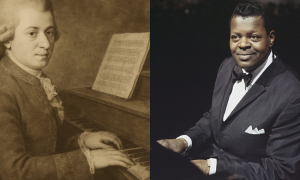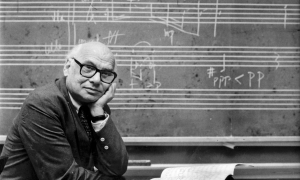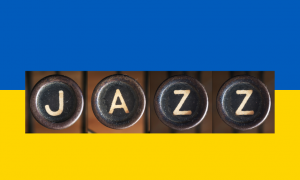Home » Jazz Articles » Opinion » The Cinderella So Few Got to Hear: Late Artie Shaw is th...
The Cinderella So Few Got to Hear: Late Artie Shaw is the Best Artie Shaw
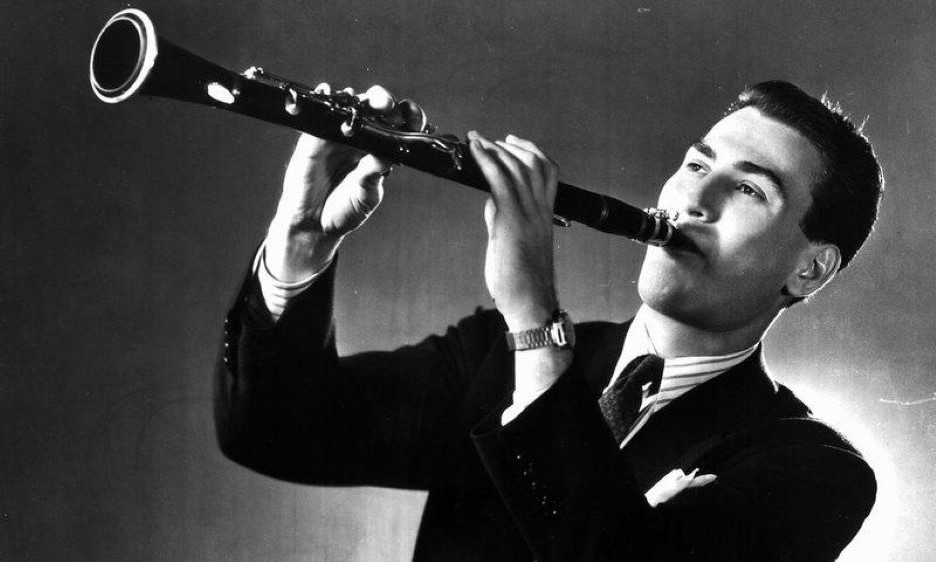
Artie Shaw
clarinet1910 - 2004

Benny Goodman
clarinet1909 - 1986

Buddy DeFranco
clarinet1923 - 2014
In 1939, Shaw went on record in the Saturday Evening Post as being on a pace to earn a quarter of a million dollars. According to the authoritative website MeasuringWorth.com, the value of that sum as household income in 2023 was nearly 13 million dollars. That may not be much by Taylor Swift's standards, but in 1939, according to the Bureau of Labor Statistics, 17 percent of the United States labor force was out of work. So think about it. Artie was earning a quarter of a million. In round numbers, about 7.5 million of his fellow Americans earned, well, nothing. You can complain about inequality in contemporary America all you want, but (1 Shaw=7.5 million morons) does lead even an admirer to think, "Dude, what was your problem? Perfectionism apart?"
Ok, so Shaw did not do so well every year, and probably nowhere near that in 1949-50. When Shaw died in 2006, he left an estate that court records suggest was near 3 million dollars. He was not exactly destitute after basically leaving the labor force some 50 years earlier. Even if the 1949-50 band was not commercially successful—and it probably was not—could he have afforded to carry it for a bit for the sake of making music, good music? Probably. But he did not want to. And it is safe to say, nobody could make Shaw do something he did not want to do for long. And, too bad, because listening to the music he was doing then, at the very least, leaves a listener with a sense of a lost opportunity. Shaw saved his best for last.
There are any number of recordings in which someone can sample where Shaw was heading, although not all of them are readily available. His series of "Last Recordings" is a bit like

Count Basie
piano1904 - 1984

Hank Jones
piano1918 - 2010
Irv Kluger
b.1921
Tommy Potter
bass, acoustic1918 - 1988

Tal Farlow
guitar1921 - 1998
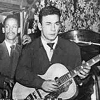
Joe Puma
guitarb.1927

Joe Roland
vibraphoneb.1920
Another characteristic of later Shaw: he really stretches out, so normally there is more than one chorus to hear. The second and even third choruses give a listener a chance to appreciate how relaxed and creative Shaw was, almost offhandedly. There are occasional new technical wrinkles as well. All of which packs a substantial emotional punch. If Shaw was capable of playing more expressively in his earlier work, he certainly never really had the space, or the sidemen—like Hank Jones—to do it. Another very good set of later recordings is The Complete Grammercy Five Session (RCA, 1989), the last eight tracks. This was not the harpsichord version of the group from the early 1940s, but from 1944 and 1945. And here, the booklet by John P. Callanan is very helpful in sorting personnel, dates, and the sort of discography that Shaw lovers would value.
If you really must have a big band, The Artistry of Artie Shaw and His Bop Band 1949 (Fresh Sound, 2005) puts Shaw squarely in the midst of players like
Don Fagerquist
trumpetb.1927
Sonny Russo
tromboneb.1929

Al Cohn
saxophone, tenor1925 - 1988

Zoot Sims
saxophone, tenor1925 - 1985

Harry James
trumpet1916 - 1983

Tadd Dameron
piano1917 - 1965

Johnny Mandel
arrangerb.1925

George Russell
composer / conductor1923 - 2009

Ray Conniff
vocals1916 - 2002
So here is the takeaway. If you think you know Artie Shaw from the days of the pre-World War II bands, think again. Arguably, some of Shaw's best playing may have been some that his "Greatest Generation" fans really never heard. Ironic no? And somehow, very Shavian. As usual, the joke was on the public, who made Shaw, and which he seemingly detested.
Tags
Opinion
Artie Shaw
Richard J Salvucci
Benny Goodman
Buddy de Franco
Hank Jones
Irv Kluger
Tommy Potter
Tal Farlow
Joe Puma
Joe Roland
Don Fagerquist
Sonny Russo
Al Cohn
Zoot Sims
Harry James
Don Paladino
Tadd Dameron
Johnny Mandel
George Russell
Ray Conniff
Comments
PREVIOUS / NEXT
Support All About Jazz
 All About Jazz has been a pillar of jazz since 1995, championing it as an art form and, more importantly, supporting the musicians who make it. Our enduring commitment has made "AAJ" one of the most culturally important websites of its kind, read by hundreds of thousands of fans, musicians and industry figures every month.
All About Jazz has been a pillar of jazz since 1995, championing it as an art form and, more importantly, supporting the musicians who make it. Our enduring commitment has made "AAJ" one of the most culturally important websites of its kind, read by hundreds of thousands of fans, musicians and industry figures every month.



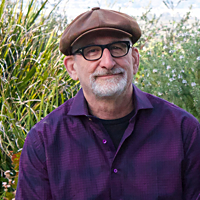


 Buy Now
Buy Now







